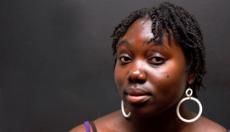Consider this a reflection of sorts. As of Dec. 14, I will have completed my undergraduate time at Loyola, and I’m proud to say that it will be a semester early. The things that I learned at Loyola that are most important to my future career as a public interest attorney/political organizer and activist were not found in my classes, but instead in the daily socialization around campus and in interacting with the administration. As a first-year student, I quickly realized that university was no different from high school – just better clothes, unprecedented freedom and more buildings. I also realized the power of cliques and social organizations in determining who gets what, sits where and who is invested with certain privileges; one only has to observe SGA budget allocations and what events are promoted more around campus. Once I observed this, I no longer got angry at “supposedly social justice events” getting hardly any attention-except at times when being a “social justice” or “critical thinking” or “catholic humanist” university fit the school’s various public relations needs. By my second year, I also learned the importance of appropriating these buzzwords to appear more active in the community than the vast majority of my classmates, professors and administration ever were, or ever will be, and I developed a sound critique of our university’s misuse of them. For example, remember the main page on the website in which various students (mostly women or people of color, which is another illusion about the demographics) were wearing the now infamous sweatshirts? These have now been replaced with various shots around the city of students wearing the buzzword T-shirts.It doesn’t matter that outside of awarding a couple thousand dollars in scholarship money to 10 or so tokenized “underprivileged” students, or our huge service day “Wolves on the Prowl” or the occasional service learning endeavor into the Loyola University Community Action Program office for students to get their hours done, the university constantly maintains the status quo around campus and in the community. All that matters is that we “appear” to be all about helping people, which was my most important lesson of what not to do: It’s the form, not the content. One only has to observe on any given Tuesday earnest LUCAPers and Circle-K members actively selling goods to raise money for things that the university should be providing (such as school busses to various projects, more adequate vans, money for supplies and money for key-note speakers), especially since these two community action groups are the main subject of our self-congratulatory university’s public relations department in post-K New Orleans. It really makes me sick to my stomach to think of the atrocities our provost and president got away with the semester we returned from being exiled all over the nation, with “Pathways” being just the tip of the iceberg. In short, I learned that those powers that be can get away with petty thievery, as long as it is done without accountability and in the name of dealing with “Katrina-related” affairs, the whole time capitalizing off of the community rebuilding work of relatively few of their students. The last lesson I learned my three-and-a-half years at Loyola University is our school will only give lip-service to the needs of its community. Has anyone actually taken the time to read our handbook, more particularly our mission statement and purpose? The language reads like that of a grassroots, community based non-profit organization, except I would argue that this institution is the exact opposite. My thoughts turn to my first year and the racist and homophobic remarks placed on the Black Student Union and ETC boards. Outside of condemning the remarks, our university made no effort to find out who did it or, more importantly, assess the racial and gender expression disparities in the New Orleans community and what our social justice framework could do about this. This event was very telling to me.Overall, my experiences at Loyola gave me a better understanding of what makes up the status quo, more effective ways to challenge it, and that a social justice framework isn’t what’s important-actions are. With that said, any guess as to how the university will live up to its newest motto “Thinking critically, acting justly?”
S. Mandisa Moore is a history senior from Bronx, New York.








